In the ever-evolving world of digital marketing, technology has become a linchpin, driving unprecedented change and simplification in strategies and execution. As the digital marketing landscape continues to expand and diversify, the role of technology in easing the process cannot be understated. This article explores various ways in which technology is streamlining digital marketing, making it more accessible, efficient, and impactful.
1. Enhanced Data Analytics and Insights
The advent of advanced data analytics tools has revolutionized the way marketers approach their campaigns. Gone are the days of guesswork and hunch-based strategies. Today, technology provides marketers with deep insights into consumer behavior, preferences, and trends. Tools like Google Analytics, Adobe Analytics, and others enable marketers to track user interactions, understand customer journeys, and measure the effectiveness of their campaigns in real-time.
These analytics platforms provide a wealth of data, from basic demographic information to more complex behavioral patterns like purchase history, online browsing habits, and engagement levels. This data is crucial for creating targeted marketing strategies that resonate with specific audience segments. Marketers can now fine-tune their campaigns to address the unique needs and preferences of different customer groups, enhancing the likelihood of conversion and improving the overall return on investment (ROI).
Furthermore, predictive analytics and AI-driven tools are taking data analysis a step further. They not only interpret past and present data but also predict future trends and customer behaviors. This predictive insight allows marketers to stay ahead of the curve, anticipating market shifts and adapting their strategies accordingly.
2. Accessibility to Imagery: Revolutionizing Visual Marketing
In the realm of digital marketing, the saying “a picture is worth a thousand words” holds more truth than ever. The surge in visual content has led to an increased reliance on high-quality imagery to capture audience attention and convey messages succinctly and effectively.
The convenience of accessing a wide array of images from a stock image agency means marketers can now find the perfect visual for their campaign with just a few clicks. This ease of access to professional-quality images has transformed how marketers design their digital assets.
Whether it’s for social media posts, website banners, or online advertisements, the availability of relevant and engaging stock images is crucial in capturing and retaining the viewer’s attention.
Moreover, these stock images are not just about accessibility; they also ensure compliance with copyright and licensing laws, which is a critical aspect of digital content creation. By utilizing stock images, marketers can avoid legal pitfalls and focus on the creative aspects of their campaigns.
Additionally, many of these agencies now offer customization options, allowing marketers to tailor images to fit their brand’s aesthetic and messaging.
The integration of stock images into marketing strategies also aligns with the growing trend of visual storytelling. In a digital landscape crowded with text and information, visually compelling content stands out and engages audiences more effectively.
Thus, the role of imagery, facilitated by stock image agencies, has become an indispensable part of modern digital marketing.
3. Automation in Marketing Processes
Technology has brought about significant advancements in automation, streamlining numerous marketing processes and reducing manual labor. Marketing automation tools have become essential for managing repetitive tasks efficiently, such as email marketing, social media posting, and ad campaigns.
These tools allow marketers to set up automated workflows that trigger specific actions based on predefined criteria, ensuring timely and relevant interactions with their audience.
For instance, email marketing automation tools can segment email lists based on user behavior, send personalized emails, and track engagement metrics like open rates and click-through rates.
This level of automation ensures that each customer receives content that is relevant to their interests and stage in the customer journey, enhancing the effectiveness of email marketing campaigns.
Social media automation tools are equally impactful, allowing marketers to schedule posts in advance, monitor social media conversations, and analyze engagement metrics. This automation not only saves time but also helps maintain a consistent online presence, which is crucial for brand visibility and audience engagement.
Moreover, automation extends to ad campaign management as well. Platforms like Google Ads and Facebook Ads offer automated bidding and targeting options, using AI algorithms to optimize ad placements and audience targeting.
This automation ensures that ads are shown to the most relevant audience, increasing the chances of conversion and maximizing ad spend efficiency.
4. Integration of Artificial Intelligence and Machine Learning
Artificial Intelligence (AI) and Machine Learning (ML) are reshaping digital marketing by offering customers more personalized and interactive experiences. AI-powered chatbots, for example, provide instant customer support and personalized assistance, enhancing customer engagement and satisfaction.
These chatbots can handle a variety of customer queries, from basic information requests to more complex assistance, providing a seamless experience for users.
Machine Learning algorithms are also being utilized to personalize marketing content. By analyzing past user interactions and preferences, ML algorithms can tailor content recommendations, product suggestions, and promotional offers to individual users.
This level of personalization makes marketing efforts more relevant and effective, as customers are more likely to engage with content that resonates with their interests and needs.
Additionally, AI and ML are instrumental in optimizing marketing campaigns. They analyze vast amounts of data to identify patterns and insights that human analysts might miss. This analysis can lead to more effective targeting strategies, better ad placements, and improved overall campaign performance.
Conclusion
Technology is undeniably making digital marketing easier and more effective. From enhanced data analytics to the integration of AI and ML, these advancements are helping marketers create more targeted, efficient, and impactful campaigns.
As technology continues to evolve, it will undoubtedly bring even more innovations to the field of digital marketing, further simplifying and enhancing the way marketers connect with their audiences.


